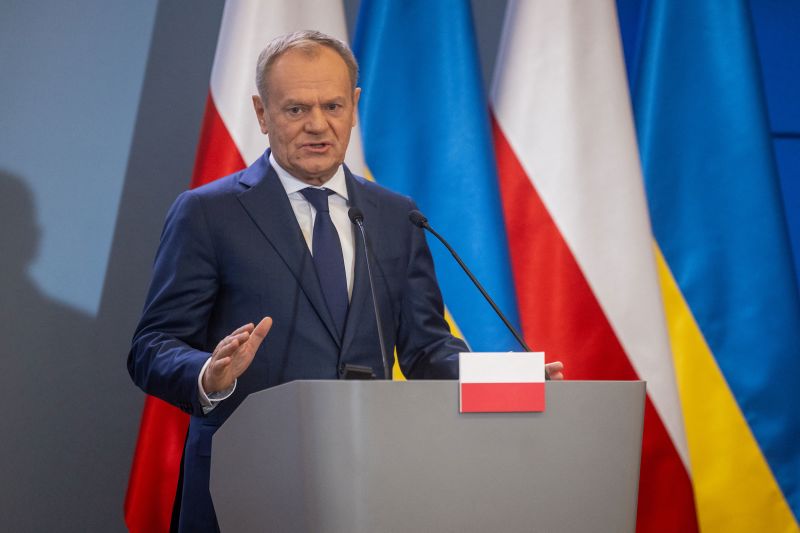
Poland’s presidential election could end last vestige of populist resistance to PM Tusk
Since winning power back from the hands of his populist rivals a year and a half ago, Poland’s Prime Minister Donald Tusk has faced one very stubborn roadblock to his plans: the country’s president.
That could change after a pivotal presidential election, which begins with a first round of voting Sunday.
Rafał Trzaskowski, the mayor of capital city Warsaw who is closely aligned with Tusk’s center-left ruling party, is leading opinion polling in the race to replace Andrzej Duda, who has served two terms and is ineligible to stand again.
His main challenger is Karol Nawrocki, an ally of US President Donald Trump, who like Duda before him is the chosen candidate of the right-wing populist Law and Justice (PiS) party that has bitterly opposed Tusk’s agenda. Nawrocki has loudly supported Trump and visited the White House to meet with the president earlier this month.
The stakes for Tusk, and for Europe, are huge: the presidential palace has been the last political stronghold of PiS, which led an eight-year assault on the independence of the country’s judicial system, media and cultural bodies before Tusk ousted their government in late 2023. Tusk has re-aligned Warsaw with Brussels, where fellow leaders have cast him as a blueprint for scrubbing a country free of populism, at a time when most centrist leaders on the continent are succumbing to opposition from the right.
Freely wielding the presidential veto, Duda has blocked several attempts by Tusk to unpick the legacy of PiS’s transformation of the Polish state, including judicial reforms that have been a centerpiece of Tusk’s agenda. He has also stalled progress on bills relating to hate crime and contraception access, either by vetoing bills or sending them into legal gridlock.
Poland’s president is the country’s head of state, though it is traditionally a more ceremonial position than the prime minister, who runs the country’s government. But the power of the veto allows a president to act as a foil to their government, and Duda has waded readily into political proceedings, publicly clashing with Tusk over several aspects of his platform.
If Nawrocki were to triumph in the poll – which will proceed to a second round in two weeks, should no candidate reach 50% of the vote – that roadblock would be expected to remain firmly in place until the next parliamentary election in 2027, when Tusk will be expected to show voters the fruits of his government’s agenda.
“A Nawrocki victory would substantially diminish the prime minister’s domestic political capital,” Marta Prochwicz Jazowska of the European Council on Foreign Relations wrote. “Not only would it weaken Tusk’s room for manoeuvre, but it would also strain his already fragile ruling coalition as its members would likely disagree on how to respond to an opposition president.”
But a Trzaskowski presidency would immediately free Tusk from those constraints. The center-left mayor of Warsaw is a pro-European and socially liberal voice in Polish politics, who lost the previous presidential election to Duda by a razor-thin margin.
Though Polish presidential candidates technically stand as individuals, rather than representatives of a party, there is little hiding their affiliations and each major party historically endorses and campaigns for a candidate.
Not all of Tusk’s pledges would immediately come to pass, however. The prime minister would still need to win the consent of his broad governing coalition for some efforts that are particularly controversial in the heavily Catholic state.
Tusk has promised to relax Poland’s abortion restrictions, which currently constitute a near-total ban on the procedure, and to allow civil partnerships between same-sex couples, but both pledges have attracted opposition from lawmakers propping up his government.
Sunday’s vote is expected to whittle the field of candidates down to Nawrocki and Trzaskowski, before a head-to-head run-off in two weeks. But much attention will also be paid to the performance of Sławomir Mentzen, the co-leader of the far-right Confederation party, which is staunchly anti-Brussels, anti-immigration and strongly critical of Ukrainian leader Volodymyr Zelensky.
